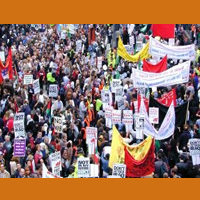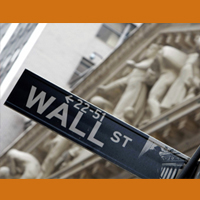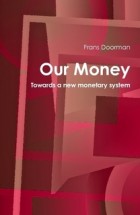OUR MONEY – THE BOOK
Why an overhaul of our monetary system is needed and how to go about it.
Our Money: Towards a new monetary system. Book on the need for an overhaul of our monetary system, and how to go about it.
In our present financial system the privilege of money creation has been given to private banks. These banks create money when providing credit. The Bank of England describes this as follows: Whenever a bank makes a loan, it simultaneously creates a matching deposit in the borrower’s bank account, thereby creating new money. In most modern economies about 97% of the money supply is created this way, the remaining 3% consists of tangible money, coins and bank notes, created by the Central Bank.
In a monetary system based on banks creating money through bank lending almost all money is debt money. And neither Central Banks nor private banks are allowed to create money for direct use by the State. This makes the State, especially in developed nations, dependent on taxation for almost all of its income. No one likes paying taxes, and many people see government, not entirely unjustified, as inefficient and wasteful. In consequence the State has come to be considered as a parasitic entity that lives on the pockets of hard working citizens and entrepreneurs. Some taxation is accepted, since for most people it is clear the State needs money to fulfill key tasks such as defense and security. So people grudgingly pay up, but only to an extent. That leaves the State not only struggling for money but also, unable to invest in sustainable development on the required scale. And it is the State that has to finance those investments: the private sector has no interest in investing for long term benefits for all rather than short term profit for shareholders.
The book Our Money explains how things could be different. It discusses the problems and drawbacks of our current monetary system, and the advantages of transferring the right to create money from private banks to the State. In line with organizations involved in monetary reform it proposes the creation of an autonomous Monetary Authority with the mandate to create and maintain a money supply that optimally satisfies the needs of society. It outlines the benefits of allowing that Authority to provide the State with the debt-free money it needs to satisfy public needs, including long term investment for sustainable development. It shows how the choice for the present system, dictated by economic dogma, is a political one – though one that almost all people and even many experts are still unaware off. It argues that public money creation is the only way to harness the productive forces of society to address our ecological, social and economic concerns. And it shows why the main obstacle to monetary transition and investing in sustainable development is not, as one might believe, private banking, but mainstream economics.
Transition to a new monetary system based on public money creation will not only be hard because of the opposition of banks, their shareholders, and economists, but even more so, because under the influence of economic dogma large parts of the public also distrust the State. Yet as Our Money argues, even the risk that the State would not handle money creation adequately is relatively minor as compared to the risk, or rather certainty, that climate change and the other ecological, social and economic challenges facing humanity will not be addressed adequately, to the detriment of present and especially future generations.
Our money contains an Annex with a series of links to and a brief description of monetary reform organizations and experts, as well as literature and video presentations on monetary reform.
SUMMARY OUR MONEY
The main arguments of Our Money are summarized here.
COMMENTS ON OUR MONEY
Comments on the book Our Money can be found here.




